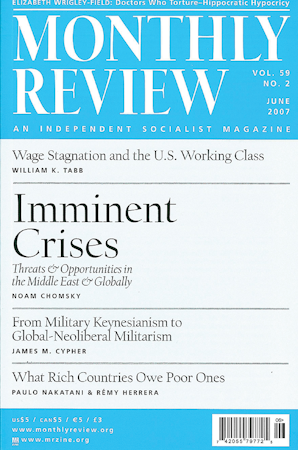Also in this issue
- Hippocratic Hypocricy in the War on Terror
- From Military Keynesianism to Global-Neoliberal Militarism
- The South Has Already Repaid its External Debt to the North: But the North Denies its Debt to the South
- Imminent Crises: Threats and Opportunities
- Wage Stagnation, Growing Insecurity, and the Future of the U.S. Working Class

